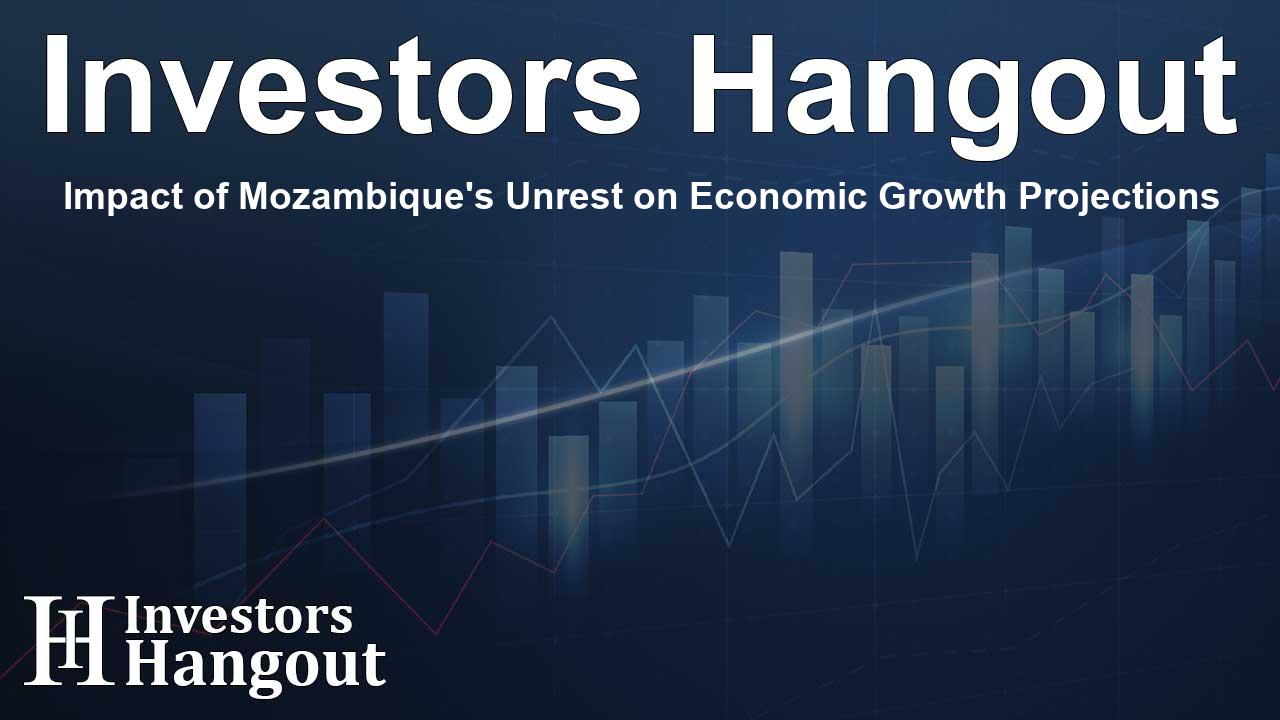Impact of Mozambique's Unrest on Economic Growth Projections

Mozambique Faces Economic Challenges Amid Unrest
In light of recent events, Mozambique's economic growth forecast for 2024 is expected to decline from the initial estimate of 4.3%. A senior official from the International Monetary Fund (IMF) has cited post-election civil unrest and the devastating effects of Cyclone Chido as significant factors influencing this downward revision.
Electoral Disputes and Protests
After Mozambique's presidential election in October, the ruling party, Frelimo, declared their candidate, Daniel Chapo, the winner. However, opposition parties have raised concerns regarding alleged voting irregularities. These contested results have led to widespread protests from opposition supporters, resulting in escalating violence that has impacted business operations across various sectors, including mining.
Impact on Business Operations
The ongoing unrest has disrupted key trade corridors, causing operational hindrances for numerous businesses. The uncertainty surrounding the election results has not only affected local economies but also deterred foreign investment, which is crucial for Mozambique’s growth. The mining sector, integral to the country’s economy, has faced particular challenges due to the instability.
Future Predictions Amidst Uncertainty
Mozambique's Constitutional Council is expected to make a crucial ruling on the election count's validity. This decision, anticipated shortly, could further exacerbate tensions and lead to additional economic disruptions if the council validates Frelimo's victory.
Forecast Changes and Growth Outlook
According to Olamide Harrison, the IMF's representative for Mozambique, economic growth showed a notable decline from 4.5% in Q2 to 3.7% in Q3, coinciding with the onset of protests. Harrison stated that, given the ongoing protests and the impact of Cyclone Chido, which tragically claimed at least 34 lives, the IMF predicts a more pronounced slowdown in Q4, with a slight recovery expected in 2025.
The Role of the IMF in Political Transitions
In view of the political turbulence, the IMF is monitoring the situation closely. Harrison reiterated that discussions regarding a three-year credit facility program between the IMF and Mozambican authorities would resume after the political transition is concluded. The IMF’s approach typically involves waiting for the establishment of a new government before proceeding with negotiations during significant political transitions.
Context of Natural Disasters
Adding to the country's challenges, Cyclone Chido has severely impacted growth prospects. The aftermath of the cyclone requires urgent attention and presents a setback for an already struggling economy.
Concluding Thoughts on Economic Recovery
Mozambique stands at a critical juncture, where its economic future hinges on resolving political strife and addressing the impacts of natural disasters. The coming months will be pivotal in determining the nation’s recovery trajectory and overall stability in the region.
Frequently Asked Questions
What are the main reasons for the economic slowdown in Mozambique?
The main reasons include post-election civil unrest, the negative impact of Cyclone Chido, and decreased business operations in key sectors like mining.
When is the Constitutional Council expected to rule on the election?
The decision regarding the election results is anticipated soon, which may significantly influence the ongoing unrest in the country.
How has Cyclone Chido affected Mozambique's economy?
Cyclone Chido has caused loss of life and infrastructure damage, dampening growth prospects further in an already fragile economic environment.
What is the IMF's role in this situation?
The IMF is closely monitoring the situation and plans to resume negotiations for a credit facility once political transitions are complete.
What does the future hold for Mozambique's economy?
While a modest rebound is anticipated in 2025, the immediate future remains uncertain due to ongoing civil unrest and natural disaster impacts.
About Investors Hangout
Investors Hangout is a leading online stock forum for financial discussion and learning, offering a wide range of free tools and resources. It draws in traders of all levels, who exchange market knowledge, investigate trading tactics, and keep an eye on industry developments in real time. Featuring financial articles, stock message boards, quotes, charts, company profiles, and live news updates. Through cooperative learning and a wealth of informational resources, it helps users from novices creating their first portfolios to experts honing their techniques. Join Investors Hangout today: https://investorshangout.com/
Disclaimer: The content of this article is solely for general informational purposes only; it does not represent legal, financial, or investment advice. Investors Hangout does not offer financial advice; the author is not a licensed financial advisor. Consult a qualified advisor before making any financial or investment decisions based on this article. The author's interpretation of publicly available data shapes the opinions presented here; as a result, they should not be taken as advice to purchase, sell, or hold any securities mentioned or any other investments. The author does not guarantee the accuracy, completeness, or timeliness of any material, providing it "as is." Information and market conditions may change; past performance is not indicative of future outcomes. If any of the material offered here is inaccurate, please contact us for corrections.